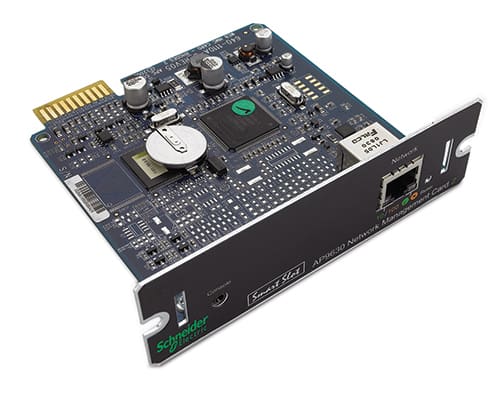If you think that only your Internet Service Provider (ISP), such as Cox Cable or Verizon, knows your IP address, think again. (Your IP address is your “electronic” ID number when you’re online.)
With the right technical know-how and few computer tricks here and there, companies, government institutions, and the not-so-friendly IT guy—and even your nerdy teenage neighbor—can get your IP address.
That’s without your permission and without you providing it to them outright. (When’s the last time you had to tell someone your IP address anyway?)
Not that there’s anything inherently dangerous about anyone knowing your IP address. After all, it doesn’t reveal your name, physical address or what you had for breakfast.
Why someone might want to know your IP address?
Most of the time, a company wants to know your IP address because they simply want run in through an IP lookup service to find out where “you” are located, because if a customer tells an online business he’s in New York, but his IP address puts him in the Ukraine, that could be a problem.
In fact, it’s common for advertisers and companies to “grab” the IP addresses of website visitors of people who click on online ads and to do a little research with it.
- They can find out what country or state you’re in
- They can find out what city you’re in…within a few miles
- They can piece together a profile of your interests or online behaviors
And just so you know.
With a subpoena and your IP address, law enforcement can ask your Internet provider for your name and home address and gain permission to hack into your emails.
By knowing your IP address, an online Forum might “block” access to their chat room.
By knowing your IP address, an online subscription service could block you from accessing their content, because a sporting/special event is otherwise blacked out in your area.
It’s not that people can “use” your IP address, it’s more that by knowing it they can track you, target you or block you.
How Someone Might Get Your IP address.
Here is a random list of online activities where the person on the other end of the Internet might be interested in grabbing your IP address…for whatever purpose.
1. By borrowing your computer or smart device. If somebody uses or borrows your computer, they can find out your IP address simply by going to WhatIsMyIPaddres.com. It pops right up.
2. By tapping into your wireless network. If you’re home network isn’t well secure, a stranger can tap into your wireless network. Also, if you let a guest use your network (you provide the password) they will know your IP address.
3. They pluck it out of your email. Relax: Most Internet/email providers today no longer include the email address of someone sending an email. But smaller Internet Service Providers or people who set up their own email server might still be revealing their IP address.
4. Through an email HTML Bug. Thanks for your interest. This bug isn’t a virus or malicious. It’s simply a piece of code imbedded in an image that’s included with an email you read. If you view the image (often just be opening the email), the bug simply tells the sender that you read the email…and it also provides your IP address. There are even services that help people set up email bugs like this. Check out WhoReadMe.com.
5. From web server logs. Here’s how the Internet works: Every time you visit a website, you leave your IP address. After all, it’s your digital pass to connect online. A website can (if they wish) scour their Web-server computers to review all the IP addresses, just to see the reach of their message or who’s a repeat visitor.
6. In Internet Forums. Joining a forum to share ideas or contribute to a discussion is getting more popular, especially in online education. Your “handle” may identify your voice and opinions, but your IP address identifies your computer to the administrator. (That’s how they ban you if you break their rules.)
7. From Blog Comments. Bloggers write in part to hear the opinions of their readers. Not only can the blog administrator read what you have say, they can uncover your IP address with a few keystrokes.
8. Through social media. Social media sites (Facebook, Twitter, Instagram, Snapchat, etc.) do not reveal IP addresses between users, but the site administrators indeed know your IP address. Also, if you click on an ad or link on the site, the they will capture your IP address.
9. Out of messaging Apps. WhatsApp, Viber). Your mobile phone uses an IP address every time you’re engaging someone through a messaging app, such as WhatsApp and Viber. Messaging app usage is growing incredibly fast. Your IP address is invisible to the person you’re messaging, but if and when you click on a link in a message, the website you’re sent to does have access to your IP address. There are sites likes grabify.link and iplogger.org that you can use to create trackable links.
10. Via your work email. The email header on your office’s email could reveal your IP address, and a clever IT-minded person can easily use it to find the location of your work place. Try our trace email tool.
11. Through a court order. In late 2016 a new law went into effect that sent chills down the spines of millions of people. Revisions to a U.S. federal security measure called Rule 41 gave the FBI and others more leeway in investigating online activity. They can request subpoenas to get IP addresses (and home addresses) much easier now.
How to keep someone from capturing taking note of you IP address.
You can see that your IP address is “capturable” most of the time when you’re on the Internet. But you can make sure that the IP address they capture isn’t traceable back to you by 99% of the time.
How?
By using a Virtual Private Network, or VPN. A VPN, which is an affordable, fee-based online service networking that masks your actual IP address and routes you through another network with a different IP address.
And that “borrowed” IP address is the only one anyone in any of the above category will see.
To learn more about VPNs, click here.













